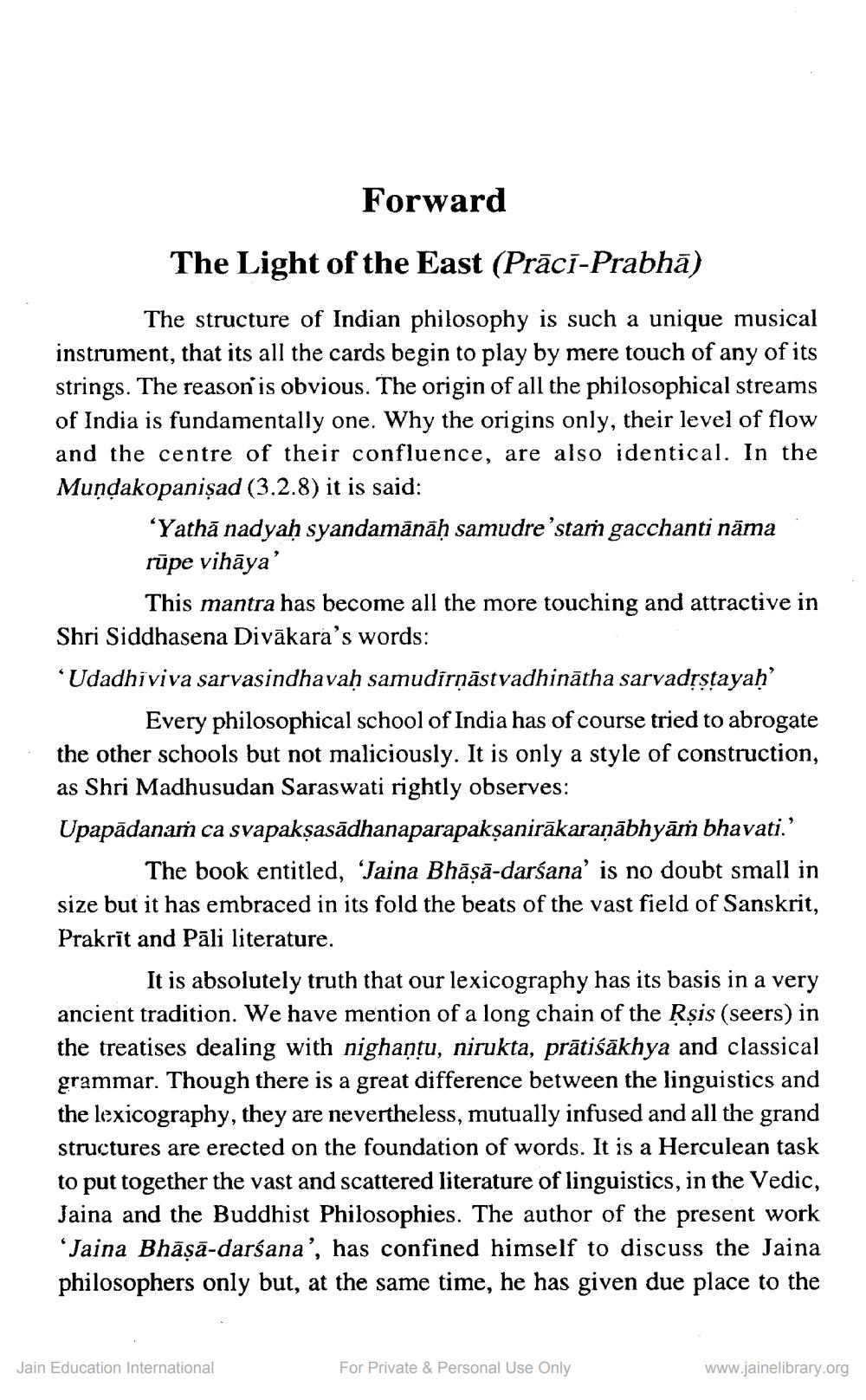________________
Forward
The Light of the East (Prācī-Prabhā)
The structure of Indian philosophy is such a unique musical instrument, that its all the cards begin to play by mere touch of any of its strings. The reason is obvious. The origin of all the philosophical streams of India is fundamentally one. Why the origins only, their level of flow and the centre of their confluence, are also identical. In the Mundakopanișad (3.2.8) it is said:
‘Yathā nadyah syandamānāḥ samudre 'staṁ gacchanti nāma rūpe vihāya'
This mantra has become all the more touching and attractive in Shri Siddhasena Divākara's words: "Udadhiviva sarvasindhavaḥ samudirņāstvadhinātha sarvadrstayaḥ
Every philosophical school of India has of course tried to abrogate the other schools but not maliciously. It is only a style of construction, as Shri Madhusudan Saraswati rightly observes: Upapādanaṁ ca svapakşasādhanaparapakşanirākaraṇābhyām bhavati.'
The book entitled, 'Jaina Bhāṣā-darśana' is no doubt small in size but it has embraced in its fold the beats of the vast field of Sanskrit, Prakrīt and Pāli literature.
It is absolutely truth that our lexicography has its basis in a very ancient tradition. We have mention of a long chain of the Rșis (seers) in the treatises dealing with nighaņķu, nirukta, prātiśākhya and classical grammar. Though there is a great difference between the linguistics and the lexicography, they are nevertheless, mutually infused and all the grand structures are erected on the foundation of words. It is a Herculean task to put together the vast and scattered literature of linguistics, in the Vedic, Jaina and the Buddhist Philosophies. The author of the present work
Jaina Bhāṣā-darśana', has confined himself to discuss the Jaina philosophers only but, at the same time, he has given due place to the
Jain Education International
For Private & Personal Use Only
www.jainelibrary.org




